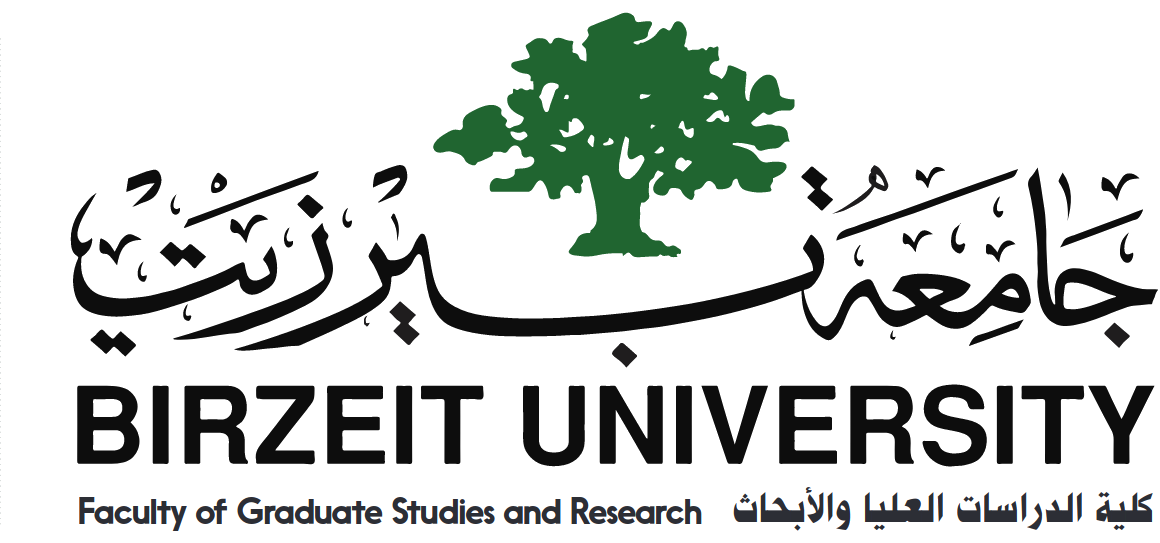Research Ethics Review Bodies – Sample Guidelines
This document contains the main elements and issues that need to be taken into account so that the ethical review process is institutionalized among research and knowledge production organizations. It is possible to separate the aspects related to the institutional structures and those related to the review guidelines in two separate documents. Of course, the nature of the institution, its traditions, and structure will likely require making some changes to the guidelines suggested in this document, including adding some elements relevant to the institutional context. Thus, these sample guidelines are only intended to facilitate such a process among Arab institutions working in the area of knowledge production.
I. Definitions
- Research: Any activity that aims at the production of knowledge.
- Research ethics review bodies: The body appointed by the authorized entity in the organization and mandated with the responsibility to review research proposals within the institution to ensure compliance with ethical guidelines, or to supervise review processes conducted by other (sub) committees. The appointed research ethics review body can propose modifications and additions to the guiding principles to ensure compliance with ethical principles at the institutional level.
- Informed consent: The consent obtained by the researcher/research team from the persons invited to participate in the research after being informed of the facts related to the research such as: the research’s goals, expected outcome, potential risks, desired benefits, consequences of participation, reasons for selection of participant, the possibility to refuse to participate or withdraw from participating at any stage.
- Research ethics guidelines: The set of guiding principles that can be formulated as a result of the researchers’ conviction that their research should: serve the public good of society and humanity; does not cause harm; contribute to human well-being and the continuity of humanity; comply with the principles of freedom, justice, equality; and protect the dignity of participants in all the stages of the research process.
II. General Guidelines:
- The role of the research ethics review body is to review the steps entailed in conducting research and approve research proposals involving human participants. This includes the collection or analysis of data involving people through surveys, observation, intervention, or other forms of research in medical, biological, behavioural, social and natural sciences or any other disciplines. In addition, the review body is tasked with reviewing and approving any research projects that can have a potential negative impact on society.
- The research review body is responsible for reviewing research that involves procedures that might have potential negative impact (direct or indirect) on the health and safety of people, or might cause any health complications, or cause a negative impact on their economic wellbeing (cause them financial losses), or negatively affects the reputation of people in their social surroundings, including:
a) Research entailing direct physical or physiological intervention in humans (invasive procedures), such as human blood drawing, biopsies, fluid aspirations, and exposure to X-rays, CT scans, nuclear or any higher radiation dose imaging.
b) Research involving psychological or social experiments and research that involves participant observation.
c) Research involving the participation of people lacking legal capacity (particularly children).
d) Research involving any possibility of identifying the research participant(s).
e) Research aiming at policy change, legal reform, or any other area where there is risk of promoting partial or partisan interests. - Research entailing the use and /or analysis of already collected data and data that is publicly available, such as, for example, data sets collected by other institutions and researchers for different goals than the proposed research, or research entailing reading texts and analysing content, do not need ethical reviews if such data and texts were available without any restrictions, and there were no factors that may lead to any violation of any of the institutional research ethics principles.
- Although the main responsibility in determining if the research needs ethical review or not is that of the researchers themselves, the authorized bodies should make sure of the need for an independent review or not (by the research ethics review body) for all the proposals that are discussed.
- In educational institutions, academic departments should integrate research ethics in courses that discuss research methods, seminars, fieldwork courses, and any course that includes a central research component in its structure.
III. Specific Aims and Mission of the Research Ethics Review Bodies:
- To safeguard the dignity, rights, safety and wellbeing of all human participants and society at large. That is, to guarantee the principles of:
a) Do no harm (to individuals and to community and society). This includes the safety, health and welfare of persons, the public and society at large.
b) Protect the dignity of participants. This entails respecting participant rights and their autonomy (including honouring individual/family views, choices and values). In particular, this entails ensuring that human subjects are not treated or used as “research tools” in any form or manner and that they, their wellbeing, and their freedom is the ultimate aim of all research.
c) Treat fairly all persons, regardless of factors such as gender, race, disability, age, or conviction, and ensure the avoidance of bias.
d) Promote the well-being of all involved in the research process.
e) Ensure the confidentiality of participants and data that might cause breaching of their privacy and safety. - To ensure that informed consent (oral or written, depending on the context) is obtained, including:
a) Respecting the right of individuals to refuse to participate or withdraw at later stages of the research process without giving any reason.
b) Obtaining informed consent from a third party (such as a parent and/or a legal guardian) on behalf of people lacking legal capacity (such as children, people with mental disability, Alzheimer’s patients); and making sure the dignity of participants is protected in all cases.
c) Providing complete and relevant information to any participant including hoped-for benefits and potential risks of participating in the research. - To ensure that the research aims to achieve best possible equity and to benefit marginalized groups when relevant.
- To provide independent, knowledgeable, contextually sensitive, relevant, and experienced reviews of the proposed research before its implementation.
- To ensure that ethical principles are adhered to during the implementation.
- To organize the research process whereby participants are able to access and view the publishable research results after its completion.
IV. Functions of the Research Ethics Review Body
- Conduct an assessment to ensure that the research abides by the principle of research ethics of protecting against wasting community resources by, for example, repeating research that is already done by other researchers. In addition, ensuring that the research pays attention to community needs (locally and globally), while ensuring sufficient academic independence of the researcher.
- Investigate the acceptability of research design and instruments from a research ethics perspective.
- Review the adequacy of clinical research facility, if relevant.
- Identify risks and benefits to participants, and make sure that the potential benefits justify the possible risks.
- Ensure that informed consent is obtained from all participants.
- Check the adequacy of procedures to protect the confidentiality of data.
- Obtain commitment from the principal investigator(s) and her/his team that the research will be conducted in conformity with the research ethics principles, and the stipulations determined by the research ethics review body, and making sure to obtain written consent in cases where verbal consent is insufficient such as cases that involve intervention in the human body (such as surgical interventions, human blood drawing, fluid aspirations, and subjection to X-rays …etc)
- Preserving the researchers’ independence and respecting their choices.
V. Review Process
- The role of the researchers
a) The researcher (the main researcher in cases of research teams) submits a research proposal to the research ethics review body. The proposal must include a paragraph entitled, “Research Ethics Considerations”, in which the researcher explains how his/her research complies with the review standards, and the steps taken to preclude any potential risk. The proposal shall also include the conventional elements of a proposal, such as the research question, the rationale, a review of relevant literature, and detailed methodology.
b) The researcher shall provide the ethical research body with full and detailed research proposals sufficiently ahead of the review process (according to the timeframe provided by the institutional laws and regulations).
c) The researcher must provide any additional details and answers to concerns of the research ethics review body.
d) Exceptions may be made, if there is an approved justification from the research ethics review body. For instance, to submit research proposals to donors before the ethical review (if this is necessary according to the researchers), but the research ethical review should be completed as soon as the funding is secured. This exception can be made if it facilitates mobilizing research resources and avoids delays, provided that the proposal submitted for funding includes reference to the need for ethical review before proceeding with research implementation. - The role of the review committees
a) Every effort should be made to complete the review process within the specified timeframe proposed by the research ethics review body. Should this not be possible for any reason, the applicant(s) must be notified in writing of the reasons for the delay, and the expected date of review completion, ensuring that the review process does not hinder the research process.
b) Research ethics review body members shall review the research proposal, including inserting notes on the document, summarizing their view in another document, and meeting and discussing issues amongst themselves in reaching a decision.
c) Proposals can be accepted without further modifications; they can be given conditional acceptance pending minor or major modifications; or they can be rejected.
d) The research ethics review body may invite the researcher before accepting or rejecting the proposal to elaborate on and clarify specific issues.
e) Applicants should be provided with the decision of the ethical review body in writing including any relevant comments as needed.
f) The research ethics review body shall inform relevant units from which proposals originated and the researcher of its final decision at the same time. Upon the request of the researcher(s), this may be postponed until the time when funding is approved if there is a request for funding which has already been submitted, and as per guidelines above.
g) Copies of the decisions on research ethics shall be stored in a depository designated for this purpose.
h) The review bodies should focus on self-education and educating the institution's members about the importance of research ethics, and disseminating their experiences and knowledge. - Appealing research ethics review body decisions:
Applicant(s) may appeal the decision of the research ethics review body decision to an authorized body according to the institution’s bylaws and procedures (it is often the same body authorized to appoint the research ethics review body), provided that there are clear justifications for the appeal, and that the authorized body has the right to ask the research ethics review body to re-examine the proposal.
VI. Formation of a Research Ethics Review Body
- The research ethics review body is appointed by an authorized entity while taking in consideration that the research ethics review body should not be subjected to any administrative affiliation (as if it were a judicial body).
- The members of the research ethics review body should be selected taking into account qualifications, experience and conviction of the importance of research ethics.



